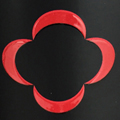Tanoaria Josafer, Lda. Cooperage
by
Kathy and Terry Sullivan
 Summary: A visit to Josafer Cooperage near Porto is inspiring. This family owned cooperage is small and the current generation is enthusiastic about their employees’ skills and the quality of the oak barrels they produce. Visitors to the cooperage have the opportunity to view everything from the cutting of the individual barrel staves, assembling the barrel by placing the stave together with metal wire and hoops and the creation of the barrel heads.
Summary: A visit to Josafer Cooperage near Porto is inspiring. This family owned cooperage is small and the current generation is enthusiastic about their employees’ skills and the quality of the oak barrels they produce. Visitors to the cooperage have the opportunity to view everything from the cutting of the individual barrel staves, assembling the barrel by placing the stave together with metal wire and hoops and the creation of the barrel heads.
 From the Douro Valley we headed to the city of Esmoriz to visit a cooperage about 27 km (7 miles) south of Porto. Our bus parked a few blocks away from the cooperage. While walking to Tanoaria Josafer, Lda. Cooperage, we passed a statue. Written on the pedestal under the statue were the words, "homemagem ao tanoeiro" (home to the cooper). Josafer Cooperage was started by José António Fernandes in a garage in 1962. At that time, he used oak and chestnut to craft the barrels. Today the cooperage uses European (mostly French and some Hungarian) and American oak. Currently the workers craft 40 barrels per day amid sawdust covered equipment and wood beams of an old building. Ninety percent of their products are exported.
From the Douro Valley we headed to the city of Esmoriz to visit a cooperage about 27 km (7 miles) south of Porto. Our bus parked a few blocks away from the cooperage. While walking to Tanoaria Josafer, Lda. Cooperage, we passed a statue. Written on the pedestal under the statue were the words, "homemagem ao tanoeiro" (home to the cooper). Josafer Cooperage was started by José António Fernandes in a garage in 1962. At that time, he used oak and chestnut to craft the barrels. Today the cooperage uses European (mostly French and some Hungarian) and American oak. Currently the workers craft 40 barrels per day amid sawdust covered equipment and wood beams of an old building. Ninety percent of their products are exported.
Today José’s grandchildren Filipe and Sandra, brother and sister (pictured left), are now guiding the cooperage. During our tour Sandra commented, that her father told his children that if they were looking for work they would always find work at the cooperage.
While visiting Josafer Cooperage, throughout the sawdust laden facility, we saw a complete demonstration of the crafting of an oak wine barrel. Josafer Cooperage also crafts barrels for distilling, decor, flower pots, hot tubs and barrel accessories. Markets for their products are: Spain, France, Germany, Holland, England, Scotland, Russia, the Middle East, United States, China and Taiwan.
Below are a series of barrel making steps, with photos, that we viewed during our visit to Josafer Cooperage.
| Step 1: Wood staves are kept outside for one to two years to dry. This allows the wood to bend more easily during the barrel making process. Tanoaria Josafer, Lda.Cooperage purchases staves already rough cut. |  |
| Step 2: The craftsmen only plane one side at 27mm thick. |  |
| Step 3: Cutting the angle of the wood so that the staves will fit tightly together when forming a circular piece. |  |
| Step 4. Assembly of the barrel begins. |  |
| Step 5. A fire inside the staves is used to bend the wood; pounding the rings around the staves continues. |   |
| Step 6. After temporary rings are on the barrel, the workers toast the barrel.Toasting a barrel is similar to toasting bread for breakfast. You can achieve different levels of toast from light to heavy. |  |
| Step 7. Making the barrel heads. The first photo shows the machine that cuts the head at an angle. The second photo shows the cooper fitting the head into the barrel. |   |
| Step 8. Sanding the barrel. |   |
| Step 9. Sandra told us that one of her goals is to make a barrel completely by herself, following the steps above. She said, “This is our passion.” photo of Sandra and her father José |  |
Unlike another cooperage that we visited in the United States, Tanoaria Josafer, Lda. Cooperage allowed us to photograph the steps. They also have school groups that visit the cooperage. One of their challenges is finding enough skilled employees to craft barrels. When visiting Porto, make an appointment to discover Josafer Cooperage, a small cooperage that provides a unique look at barrel construction.
Tanoaria Josafer, Lda.Cooperage
Av. 29 de Março 779, 3885-550 Esmoriz, Portugal
Article written April 2018.
Please support the following.
 |
||||
|
Portugal |
Spain and Portugal |
SmoothRed London, England, United Kingdom |

